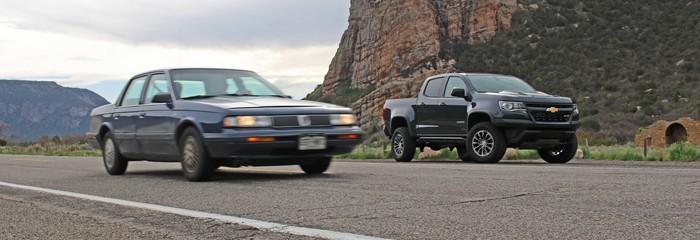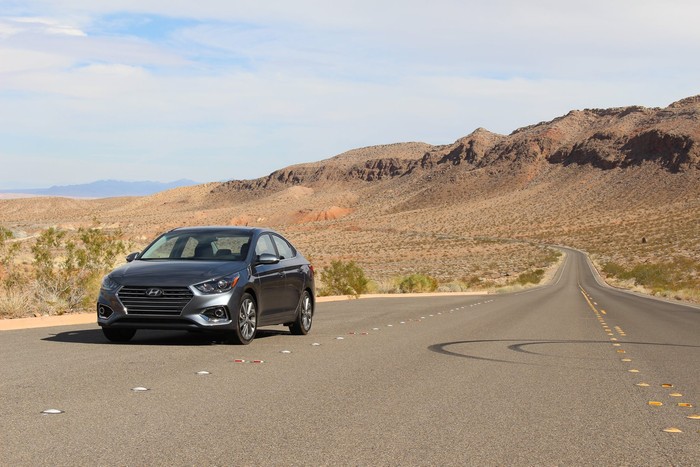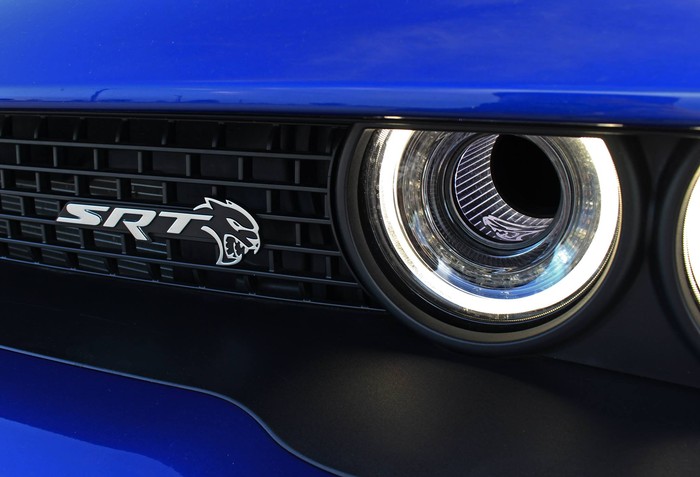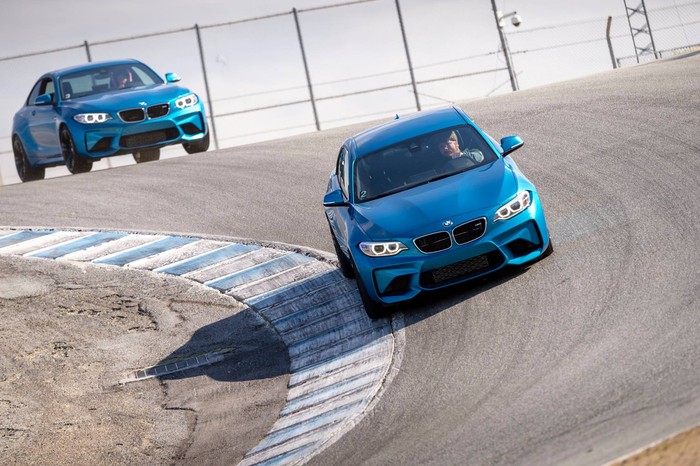
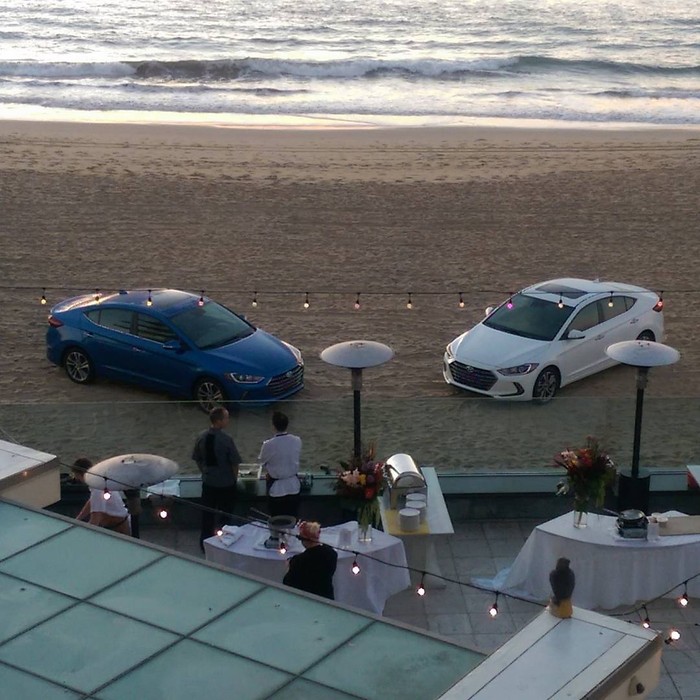
A Leftlane overtake: Laws and Sausages, Part II
Byron addresses the ethical questions surrounding automotive journalism.
I've been on "the circuit" for five years, and in that time I've seen a little bit of everything (and everyone) this business has to offer. I've seen self-made success stories with encyclopedic knowledge of every car on the market; I've seen personalities who care more about the availability of hotel amenities than the opportunity to drive $200,000 automobiles.
To paint the entire industry with one brush is disingenuous. To assume that because the opportunity for corruption exists that everybody must therefore be corrupt is doing a disservice to a great number of dedicated, talented and honorable people who actually take their profession seriously.
In my previous piece, I discussed the symbiotic nature of the PR-Journalism complex. The fact of the matter is that without manufacturers paying for press launches, a large number of voices in the auto journalism field would go silent. It's easy to assume that no value would be lost, and there is a valid discussion to be had about the economic realities of modern product-based journalism, but that's not central to my point today.
The people I respect in this business--the people with integrity--fall into one of two categories. The first are those with what I'll call ideal integrity. Their outlets pay their way. They take nothing for free, often staying off-site in less extravagant accommodations. They refuse all swag. They do everything possible to avoid the appearance of being "on the dole." There are very few in this category.
The others exhibit what I'll refer to as practical integrity. They take the flights, stay in the hotels, eat the meals and drink the hooch, but despite how all of that may look to an outsider, they're not actually bought.
As the late Jesse Unruh said, "If you can't eat their food, drink their booze, screw their women and then vote against them, you've got no business being up here." He was referring to lobbyists, but the sentiment suits our purposes just fine.
Then, there are those for whom I have little or no respect at all. Some of them pretend to be in the two categories I outlined above, but there are just as many (if not more) who openly milk the system for all it is worth.
There's a pervasive and insidious belief among auto enthusiasts that big print outlets are most susceptible to automaker influence. The logic is superficially sound. If you're dependent on ad buys, you're at their mercy, right?
You'll often see that sort of reasoning espoused by disruptive personalities who are trying to establish themselves as alternatives to old-school automotive media. I encourage you to view such assertions with skepticism. New and different perspectives have value and competition betters the breed, but shills are shills, and I assure you that they are far more rampant in the world of social media entrepreneurship than they are among the ranks of the established outlets.
Was there a time when the biggest advertising campaign would buy a Car of the Year award? Evidently. But the reality is this: In today's flooded information market, the reach of a large-scale media brand is leverage, not weakness. The disrupter just now getting on the gravy train is the one with the most to lose. The folks getting their hands on their first Bluetooth speakers and branded ball caps are keen to see just how deep into the swag bag they can reach.
The relationship between traditional journalists (and I don't just mean print) and social media personalities ("influencer" is more and more becoming a misnomer) is tenuous, at best. I've shared post-drive dinners with "brand ambassadors" for big-box retail chains. What automotive expertise do they claim? None. They are marketers by another name, far more at home lecturing others about monetizing Instagram than evaluating the capabilities of any complex machine.
But they provide two things which automakers value a great deal: a large audience and a willingness to provide a signal boost to a marketing campaign in exchange for an above-average hotel room and a few expensive meals.
At this moment, you may be asking yourself whether we are any different. After all, in the eyes of the automakers, we're both a means to an end. We both offer exposure and we come at the same price. As journalists, we may be more unreliable, but does it really matter that we spent 400 words critiquing a transmission choice if we end up contributing just as much to their Google analytics as the guy who spent 15 minutes behind the wheel before retiring to the spa to post selfies?
So, it falls to you. Does it matter that we know what makes cars good or bad? Do you care that we perform our own maintenance, work on our own projects, race our own cars? Do these things give us credibility? Do they make it easier to relate to us? Whether our insights are of any more value to you, the reader, is your decision alone.
Now, how about the logical follow-up question? The fact of the matter is that personal and professional integrity are entirely optional in this business. If the system is this ripe for exploitation, why trust anybody?
Honestly? Don't.
If I've learned anything from nearly twenty years of talking cars, it's that the people with the strongest opinions often give the worst advice.
Think about the big personalities in automotive journalism--your Clarksons, et al. Look past how often you agree or disagree with their conclusions about a given car and instead focus on how often they actually dispense useful advice. Hell, Top Gear and The Grand Tour have practically built a brand on the fact that the hosts are chronically incapable of doing exactly that.
You don't follow these people for their nuanced take on the subtle differences in tire feel between a given group of hypercars. You consume their content because they are entertaining.
That's right. You are not an innocent bystander. You are a consumer and we are vying for your patronage, and caveat emptor applies just as universally to media consumption as it would to any other form.
It's not my place to tell you how to shop (so to speak), but if you want some semblance of objectivity in the reviews you read, the people you should follow in this profession are those who are best at providing context, not conclusions.
That may not seem like such a revolutionary idea, but we live in a world of hot takes, and you won't find context in 280 characters.
The maxim taught to every journalism student on day one of feature writing is show, don't tell. If you reach the end of an automotive review without knowing the conclusion ahead of time, the author has violated this fundamental tenet.
Let me put this another way: If you expect somebody to be able to articulate what makes a car good, they'd better first be able to articulate what makes a car. Writers (I use that term as a catch-all for automotive journalists of any medium.) who can do the latter well don't even need to bother themselves with the former.
This was true even when automotive scribes were just as often engineers or race car drivers as actual professional journalists or writers. This was back when "editor" was a job description rather than just a title (Remember "-Ed"?) and newsrooms could absorb the time and cost of polishing their rough-edged work. And it was worthwhile, because while they may have lacked finesse with the written word, they were adept at articulating the character of the cars they drove.
These things create context, and context is what lets you gauge the validity of a conclusion (or reach your own independently). A writer who can effectively convey the difference between driving a Dodge Challenger and a Ford Mustang doesn't need to tell you which one is better.
Even more than that, they can leave you with the notion that either could be, depending on what you're looking for.
So, what does all of this have to do with the ethics of automotive journalism?
Context.
Simply put, if you choose to consume content produced by journalists who are adept enough at their craft to properly convey context, there's little (I'd argue no) need to be concerned about individual integrity.
Even setting aside the myriad opportunities for chicanery present within the system, the simple fact of the matter is that we operate within an enthusiast culture. I count myself among those with more diverse--bordering on eclectic--taste in cars (a Wrangler, Miata and Challenger comprise my personal fleet), but having a varied palate doesn't mean I don't have my preferences.
We all do. Some of us are better than others at putting them aside for the sake of the job, but they exist. By putting emphasis on the qualities of the cars we evaluate rather than how we feel about them, we take our personal biases out of the equation.
The golden age of automotive journalism may be behind us. The overqualified renaissance man is no longer the anchor of every car rag; he's been replaced by jack-of-all-trades enthusiasts who will take crap pay and no benefits to do a job they love. Rather than dozens of high-quality publications, we have thousands of democratized voices vying for attention.
Most of those voices aren't worth your time, but many still are. The savvy and discerning consumer of automotive media can pick out the baby in the bath water and drain the tub judiciously.


